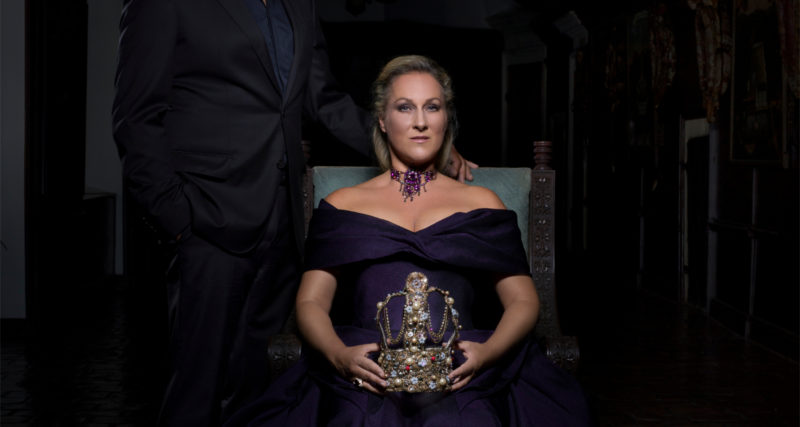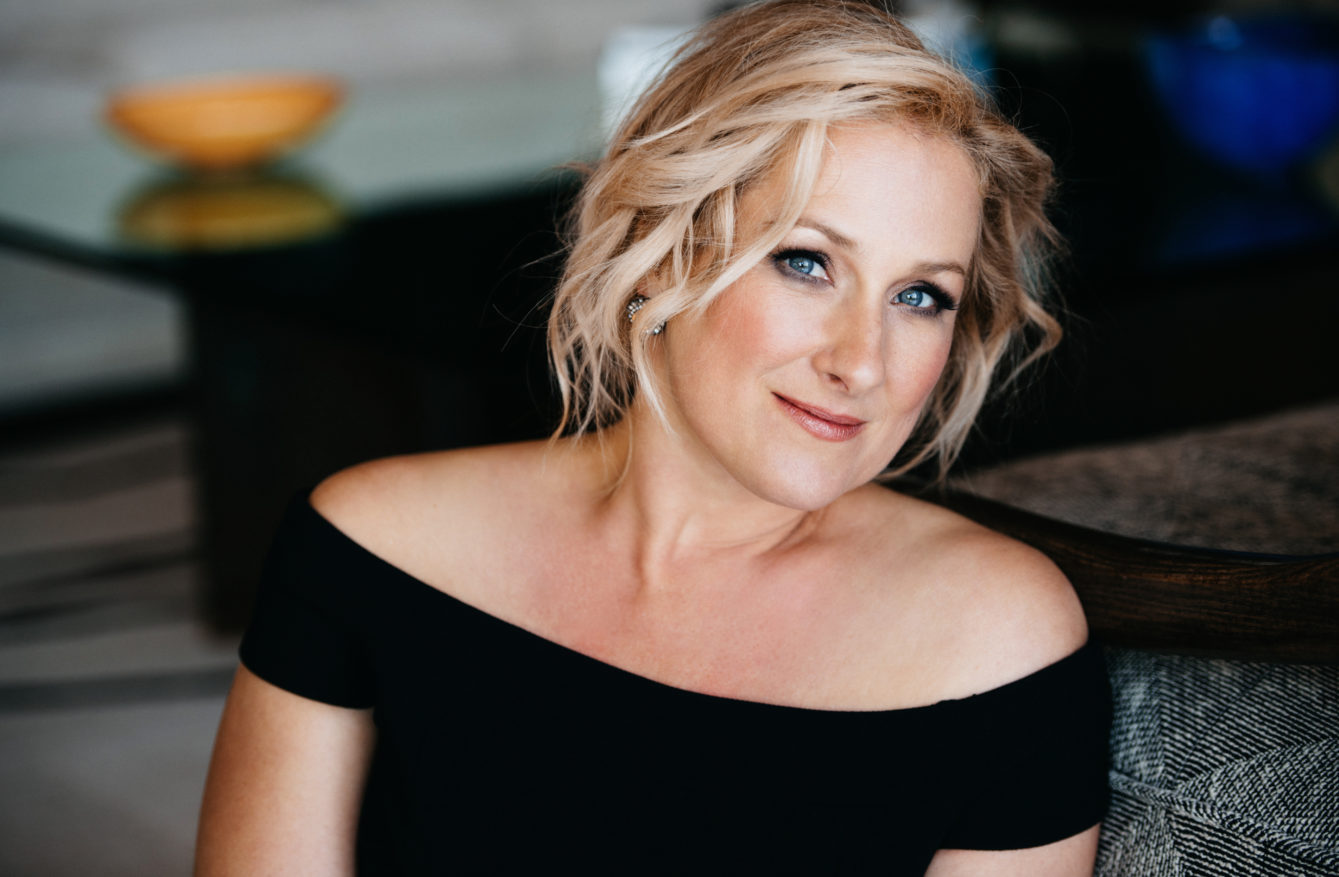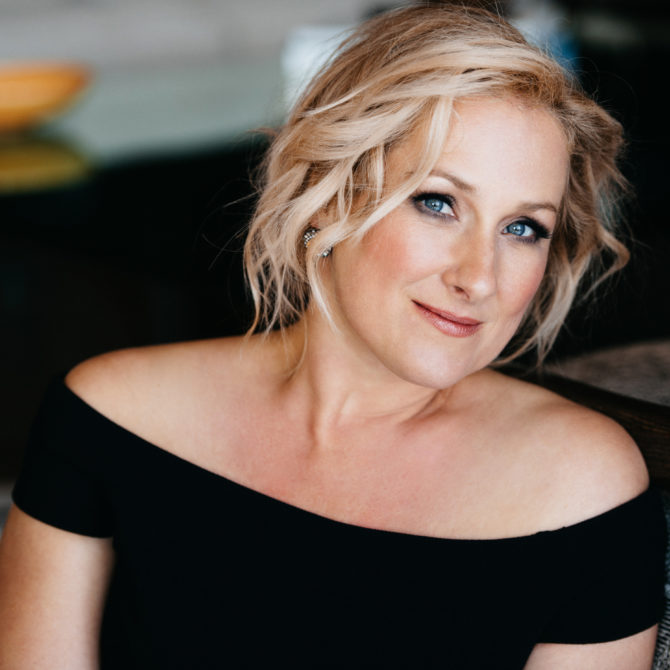Revopéra: Interview with Diana Damrau & Nicolas Testé
Aug. 14, 2020

Paris will have the great pleasure to welcome Diana Damrau and Nicolas Testé, who will be on stage together for a recital at the Philharmonie on December 15. But before that, many other projects are to come to light: Maria Stuarda at the Zurich Opera, an online recital for the Met Opera and the release of « Tudor Queens », Diana Damrau’s newest recording.
This has been a very strange time for artists, with lockdowns all around the globe and uncertainty about upcoming concerts and shows. Can you tell us more about the way you are going through this unique period?
Diana Damrau: We spent the quarantine period in the South of France. In an instant, all cultural institutions closed and suddenly we had to fulfill a new profession like millions of other parents: elementary school teacher. You are on duty all day! So we at least experienced spring here and took care of the garden intensively. It was a special time. If there is anything positive to be gained from the crisis, it is certainly the deceleration and the fact that the climate has experienced such an important recovery.
In addition, we were trying to support young singers and opera houses. The fantastically organized Met Opera „At Home Gala“ was a real ray of sunshine in these days in order to keep the cultural scene alive. It is shocking to see how culture is often treated, or rather, not treated. A generation of young artists will probably get lost, break away. So we do hope that the worldwide cultural activities can go back to normal as soon as possible.
On October 24 at 1pm ET, I am going to interpret a recital in frame of the Met Opera series together with my wonderful colleague Joseph Calleja, live from Malta. The according programme will be announced soon.
Diana Damrau, you are about to release „Tudor Queens“, a record dedicated to Donizetti’s three royal heroines. Why is it important for you to sing these belcanto roles? Would you like to sing other heroines in the future, like Semiramide, for example?
Diana Damrau: First of all, it was a great pleasure to do the recording with the fantastic Orchestra e Coro dell’Accademia Nazionale di Santa Cecilia and the wonderful Maestro Sir Antonio Pappano. The „Tudor Queens“ are the greatest pieces for a „stage animal“. Vocally and theatrically they are a huge pleasure. You can play with your voice and you have experienced women in front of you. It is vocal acrobatics but it should always remain connected to the character.
In September and October, I am going to sing Maria Stuarda at the Zürich Opernhaus, and afterwards we will present “Queens & Kings of Opera” in major cities in Europe, amongst them the Philharmonie de Paris on December 15. Next to the great primadonna roles, I am very much looking forward to singing more Strauss roles with their typical „style of conversation“ and amazing subtleties. I admit that I have missed a bit singing in my native language, German. So I can’t wait to perform Capriccio in Paris and Munich, and to continue with other Strauss operas as well as Mozart roles, like the Countess in Le Nozze di Figaro, in the future.
Nicolas Testé, you are expected to be Sarastro again at the Opéra de Paris next year. How does it feel to take part in this extraordinary production by Robert Carsen? Which other Mozart roles would you be keen on singing in the future ?
Nicolas Testé: I am very pleased to, again, be part of this special production by Robert Carsen. Last time the cast was almost 100% French which was extraordinary for us singers as well as for Paris and France.
From the overture, all the poetry of the work is revealed: the delicacy of the appearance of the motive of the forest, projected onto a thin curtain masking the stage. I am still touched when I think back to the “Sarastro scene”. The solemn atmosphere of the veiled assembly is breathtaking. It is always wonderful to work with Robert Carsen who is one of the best and together with Stéphane Braunschweig (with whom I did my first Sarastro) and Laurent Pelly, one of my three favourite stage directors.
In the future, regarding Mozart I am only interested in singing more Sarastros and maybe the Commendatore in Don Giovanni. For my voice there are many more possibilities in the French, Italian and German repertoire: Don Carlo (Filippo II), I Masnadieri (Massimiliano), Simon Boccanegra (Pietro), Aida (Ramphis), Macbeth (Banco), I Puritani (Giorgio), Faust (Mephisto), La Damnation de Faust (Mephisto), Pelléas et Mélisande (Arkel), Hamlet (Le Roi), Les Huguenots (Marcel), La Reine de Saba (Soliman) and of course Tristan & Isolde (König Marke) or Der Fliegende Holländer (Daland).
Is it important for you two to be on stage together, both artistically and for the organisation of your respective careers ?
For our tour motto “Royal Affairs – Kings & Queens of Opera”, there are important signature roles for soprano and bass. So it is wonderful to present selected arias and duets in frame of our Europe Tour. On top of this, we can spend time together!
You will sing together at the Philharmonie de Paris in December, with a very varied and eclectic program. Could you give us more detail about this concert and about the whole “Royal affairs” tour ?
We are very much looking forward to this special performance at the Philharmonie. With “Royal Affairs – Kings & Queens of Opera”, we are going to perform together with the Orchestre National d’Île-de-France, under the baton of Ivan Repušic, selected arias and duets from the 19th Century French and Italian Operas (Donizetti, Gounod, Rossini, Thomas and Verdi). We will also present this programme in major concert halls throughout Europe and later on in Asia.
Diana Damrau, you will make your debut in the role of the Countess in Capriccio at the Opéra de Paris in 2021. Can you tell us more about this project, and about some other roles you are preparing or would like to sing in the near future ?
Diana Damrau : Capriccio, Richard Strauss’ final opera, is subtitled « A Conversation Piece for Music ». The score is actually extraordinarily nuanced and as complex as one would expect from Strauss’s last opera. The music contains multiple references to earlier compositions such as Ariadne auf Naxos, Daphne, or Der Rosenkavalier, and leads into the great final scene of the Countess in love. In Capriccio, we are literally dealing with a chamber opera, which, however, unfolds all the registers of a grand master’s stage composition. It is a masterwork and a musical theatrical jewel. I am so glad that we get to show this opera especially in this time, the right time!, since the whole „conversation“ between the extremely well developed characters is around culture, music, poetry, theatre, singers, actors, dancers and OPERA. Every word is so true. A treasure trove for everybody: uplifting, amusing, sensitive, deep and… makes you think!
Nicolas Testé, you performed in I Puritani last season at the Opera de Paris. Would you like to keep singing belcanto roles, or are you considering taking on a heavier repertoire ?
To interpret the role of Sir Giorgio in Bellini’s last opera I Puritani at the Opéra Bastille was pure joy. Besides an excellent cast, Laurent Pelly has created a real work of art. The orchestra was very inspiring and Riccardo Frizza’s energetic direction has unleashed an orchestral breath that gave space to the music and the voices. So I Puritani is always an opera which I would love to sing more often.
In my opinion it is important for every voice to keep singing Belcanto repertoire. Apart from I Puritani and Lucia di Lammermoor (Raimondo), I would love to sing Count Rodolfo in La Sonnambula.
Are there any other upcoming projects you could share with us, or any artist you would particularly enjoy working in the near future?
There will be a lot of exciting opera, recording and concert projects in the future. Apart from the mentioned opera productions we are going to tour in South America, the US and Canada in the next season.

